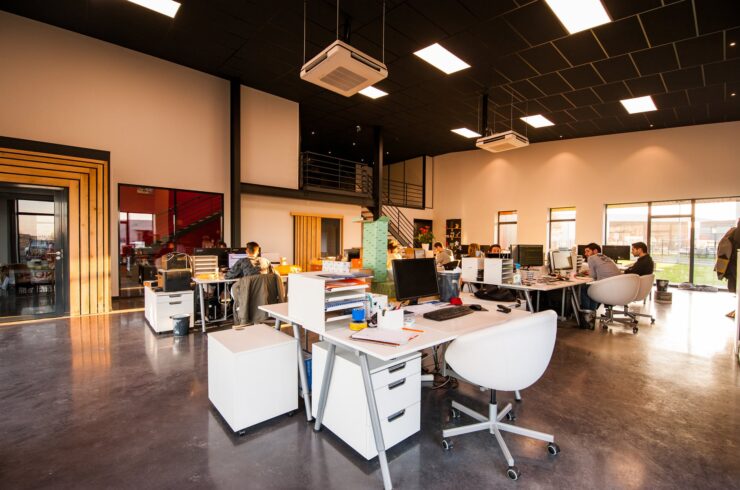
Productivity is a measure of how much a person can produce in a given amount of time. It’s best understood as the art of using your available hours wisely to get things done as effectively as possible. Naturally, time management skills are essential to becoming more productive; managing your time in a systematized, efficient way helps you achieve your goals and do more with less.
If you’re feeling overwhelmed with work, it may be time to take a step back and focus on how you can better manage your time. This post will cover the basics so that you can get back on track and improve your output. We’ll go over strategies for getting more done in less time and discuss the most effective ways to plan ahead.
Let’s get started!
Set Goals for the Day
Setting goals can help to clarify what exactly it is that you need to accomplish within a certain time frame. Make sure to set goals for each day rather than just one big goal for the week or month. This will help keep your tasks realistic and manageable.
When setting up your daily goals, make them specific so that they are easily measurable. It is also helpful to set deadlines for your daily goals to know when you need to be finished.
Having hard and soft deadlines is important as well. A hard deadline means the task needs to be completed by a specific time, whereas a soft deadline is more flexible if there are extenuating circumstances.
Plan Your Tasks in Order of Importance and Urgency
Planning your tasks in order of importance and urgency will help you stay on track. It also helps with prioritizing what needs to be done first when multiple projects need attention at the same time.
Write down your daily goals for each task so they are easy to follow up on during the day, or even pin them up somewhere visible when you are working at home. You can group similar tasks together to avoid feeling overwhelmed with all the things that need to be finished.
For example, if there is a project due tomorrow and it needs research done on five different topics, break them down into smaller chunks of work instead of trying to do everything in one sitting.
Start With the Most Important Tasks First
Have you ever heard the expression ‘eat your frogs first’? It means starting your day off right by tackling the items on your list that are most important — even if it feels laborious at first. In doing so, you will help set a good tone for how productive you are going to be that day.
If you are someone who often feels overwhelmed or behind from the moment you arrive, it may be helpful to ease into your day more gradually. Start with the simpler and less time-consuming items on your high-priority list. That way, you can get more tasks off your plate rather than feeling overwhelmed all day.
Less time-consuming tasks are generally met with less resistance. If there is a big project or assignment due soon that can easily be put aside for later, doing so can help you to be more productive throughout the day.
Take Breaks When You Need Them
Taking breaks will help you recharge your batteries to have the energy to get back on track. Try not to take a break in the middle of doing something, as this might cause unnecessary stress and ruin your momentum.
Breaks don’t need to be long. In fact, even just five minutes can work wonders when you are feeling tired and overwhelmed. Make sure to get up from your desk and do something different for a bit, like checking on social media or having some water.
Find Ways to Make Your Work More Enjoyable
If the work that needs to get done does not seem interesting or is not something you enjoy, try finding ways to make your job enjoyable so that you can focus on getting things done instead of dreading what’s to come.
There are many ways to do this, like listening to music while working or getting a good night’s sleep before starting on an important project. Little changes can equate to big improvements and can help you be more productive in the long run.
Get Rid of Distractions
Getting rid of distractions by turning off notifications on your phone, closing social media apps, and not bringing work home with you at night will help you be more productive.
Make sure there are no unnecessary items around where you are working so that nothing distracts or tempts you away from finishing what needs to get done.
Putting your phone on do not disturb mode or turning it off altogether will stop you from constantly checking for notifications. Phone checks may feel momentary, but the small increments of time add up over the course of your day!
It is also helpful to close out any unnecessary apps so as to not take up space in your memory and create distractions for yourself while working at home.
Prioritize Email Only Twice a Day
Email is one of the biggest distractions out there, so make sure you only check it twice per day. Distractions will start to pile up if you constantly go on your email throughout the workday, and this might cause unnecessary stress or frustration once everything starts getting piled up in your inbox.
Set aside time at certain intervals during the day to go through emails so that you can get them done and out of your way while also allowing yourself time for other projects.
Working in batches is another helpful tip when it comes to prioritizing email, as this allows you to answer all of your messages at once instead of having things pile up throughout the day.
Keep in mind to not check it until after completing all other tasks for the day. This will help you be more productive and stop wasting time on little things that are not important.
Don’t Have Meetings Back-To-Back
Meetings are another big time-waster that can slow you down. It’s easy for back-to-back meetings to blend together and take up the majority of your day, leaving you with no time for the other things on your list.
Try not to have more than one meeting per day so that they don’t run over into other tasks that need to get done. It’s especially important to avoid back-to-back meetings where possible; they’ll both suffer quality-wise, which only means less productivity overall.
Prepare for the Day Ahead of Time
Planning out your day in advance to prepare what needs to get done will help you save a lot of time. It helps to have a list put together before starting work so that you don’t need to do things spontaneously and waste valuable minutes trying to come up with a plan.
When you have a plan already set out for the day, not only will your work be more productive, but it also won’t feel overwhelming to tackle everything at once. This can make all of the difference in having an efficient time management routine throughout the week.
Keep Track of How Much Time Each Task Takes
Keeping track of how much time you spend on specific tasks will help create a more efficient schedule. If some things take up too much time or aren’t as important, then it’s helpful to cut them out and stick with what works best for your routine.
Make sure not to overload yourself by trying to do everything at once. This will only make you feel more overwhelmed and less likely to be productive, so choose what’s most important each day and finish those before tackling anything else on your list.
Time tracking can help you keep tabs on how much time you spend on specific tasks. This will help you get a better idea of what is working for your schedule and what can be cut out or decreased to take up less time throughout the week.
You can plan out your week in advance to have a good idea of what needs to get done and when. This will help you be more productive and tackle items on your list each day without feeling too overwhelmed or putting things off until the last minute.
Reward Yourself for Completing Tasks
Rewarding yourself after finishing a task will motivate you to keep going. It can be something as simple as taking the time to enjoy your morning coffee or getting some fresh air when it’s nice outside.
Treating yourself is also another way of rewarding, whether that means buying a new book on Amazon after hitting a particular benchmark or going out for a night on the town after getting everything checked off of your list.
Make sure not to break the bank when rewarding yourself, but at the same time, don’t hold back on taking some much-needed time for yourself. It’s important to reward yourself along the way to stay motivated and be reminded of your accomplishments.
Efficient Time Management 101: Conclusion
Being productive throughout the day is important for time management because it will allow you to complete more work in a shorter amount of time. When there’s too much on your list, it can feel overwhelming and even impossible to accomplish all that needs to get done.
Time tracking will help you to manage your time throughout the week more efficiently. It will also give you an idea of how long specific tasks take, which can aid in creating a better schedule and keeping track of what needs to get done each day.
With these tips, you’ll be able to have a time management routine that allows you to be more efficient throughout your day and get things done promptly. A work life with less burnout and more productivity is well within your reach!


